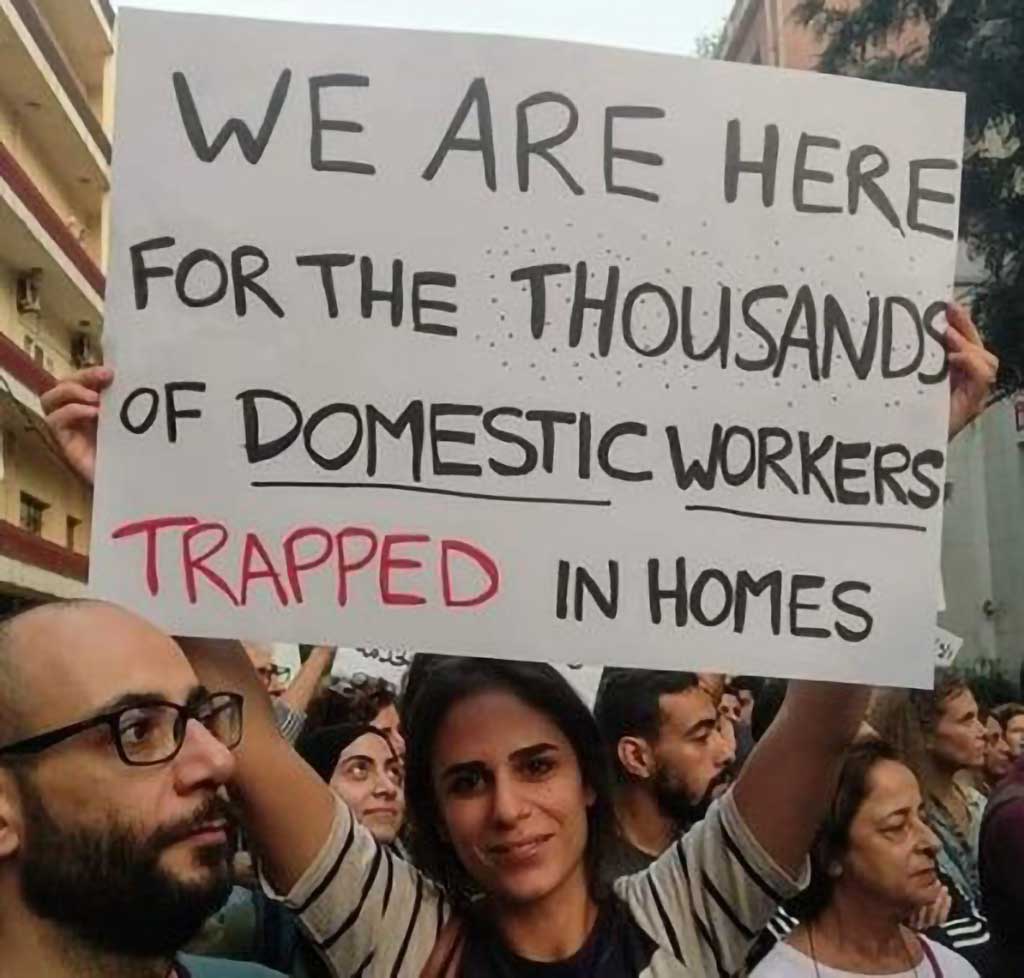Practical Tips for Employers of Migrant Domestic Workers During the Economic Crisis
December 9, 2019
Announcements.

In these exceptional circumstances, Anti-Racism Movement calls upon employers of migrant domestic workers to take simple measures that would help alleviate the impact of the economic crisis on that community. Even though we are well aware that the crisis affects everyone living in Lebanon today, migrant domestic workers remain among the most vulnerable communities, with salaries as low as $100/month in some cases. We therefore appeal to employers to follow the suggestions below, to the best of their ability and according to their personal circumstances in the current context:
1. Pay in USD: If you still have access to dollars, even if for a limited period, consider paying the salaries of migrant workers in dollars. Some workers’ families depend upon their remittances to survive and money transfer companies are refusing Lebanese pounds or adopting high exchange rates.
2. Pay in LBP at market rate: If you cannot pay in dollars, you may pay in Lebanese pounds at the market exchange rate rather than the official exchange rate, otherwise the worker would lose 30-40% of her salary when trying to convert it or to send it abroad.
3. Ask expats for help: If you have a family member or friend living abroad, ask them to transfer the worker’s salary to her family directly (and send a receipt). You can pay them back on their next visit to Lebanon.
4. In case you will be unable to secure the worker’s salary in the near future: discuss the problem with the worker, think of all possible solutions together, and do not make any decisions without her consent.
5. If the worker chooses to travel:
-
If she has a kafeel (sponsor), it is her kafeel’s responsibility to buy her a ticket and secure her return to her country.
-
If she does not have a kafeel, she can register for repatriation at her embassy. In this case, we strongly encourage you to cover all, or part of her penalty fees and her ticket, and continue to employ her in the meantime, as the process of repatriation can take months. You could also contact NGOs for assistance. Please reach out to us to know which NGO would be most helpful, according to her particular case.
6. If the worker chooses to change her sponsor to continue working in Lebanon legally: You can help her find a new employer to become her official sponsor and then complete the tanazol process so she can legally work for them.
For more details, please contact us on Tuesday or Thursday between 4:00 PM and 7:00 PM at the following numbers 01326880 or 76600476 (WhatsApp only).
Tags :
أزمة إقتصادية,عاملات منازل,عاملات مهاجرات
Share This :
Related Posts
Domestic Work in Lebanon Post-2019: Reflections on Emerging TrendsFebruary 18, 2022
Call for VolunteersApril 26, 2020
Practical Tips for Employers of Migrant Domestic Workers During the Economic CrisisDecember 9, 2019
Have Any Questions?
To inquire about this statement and the context, email us or fill the form.